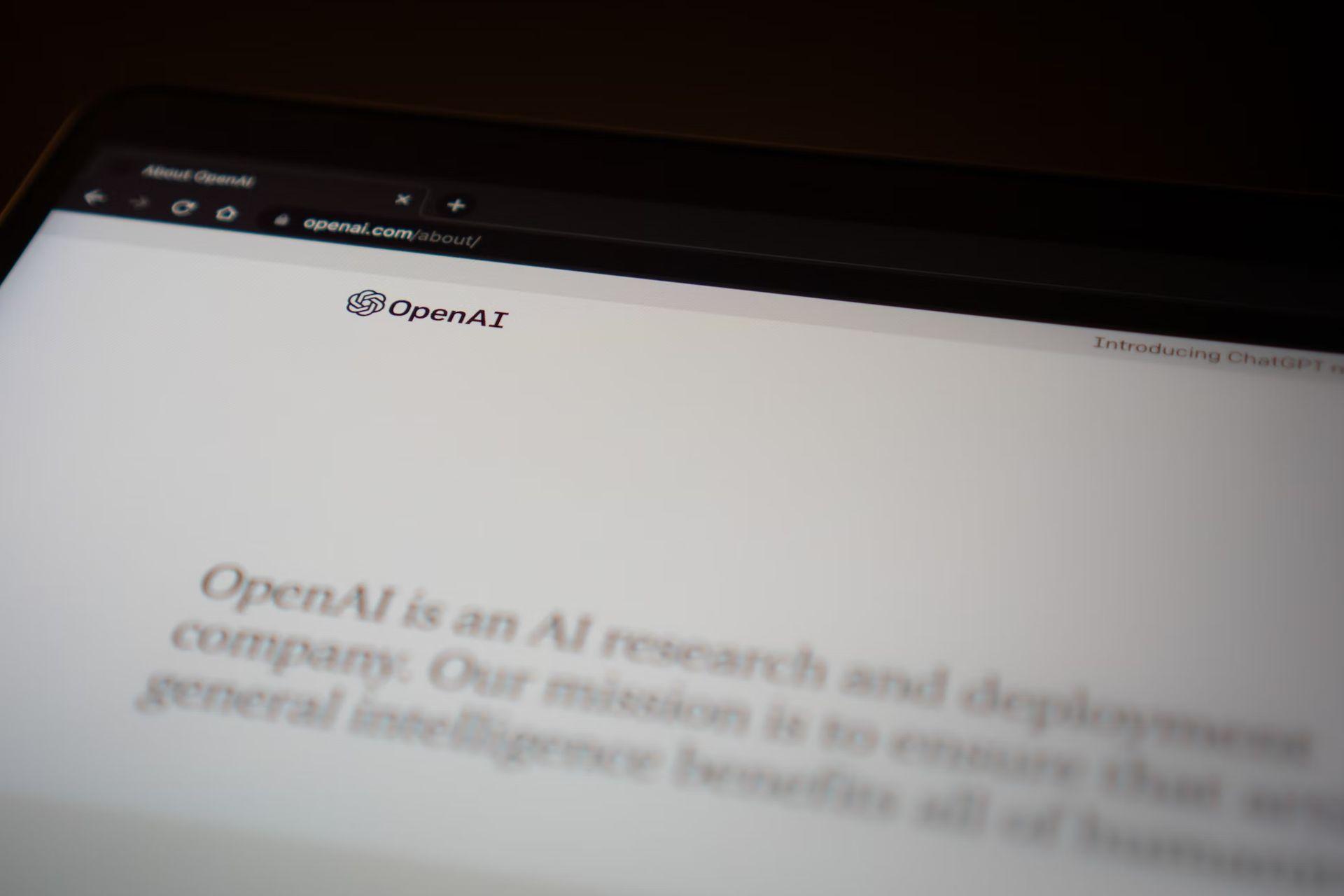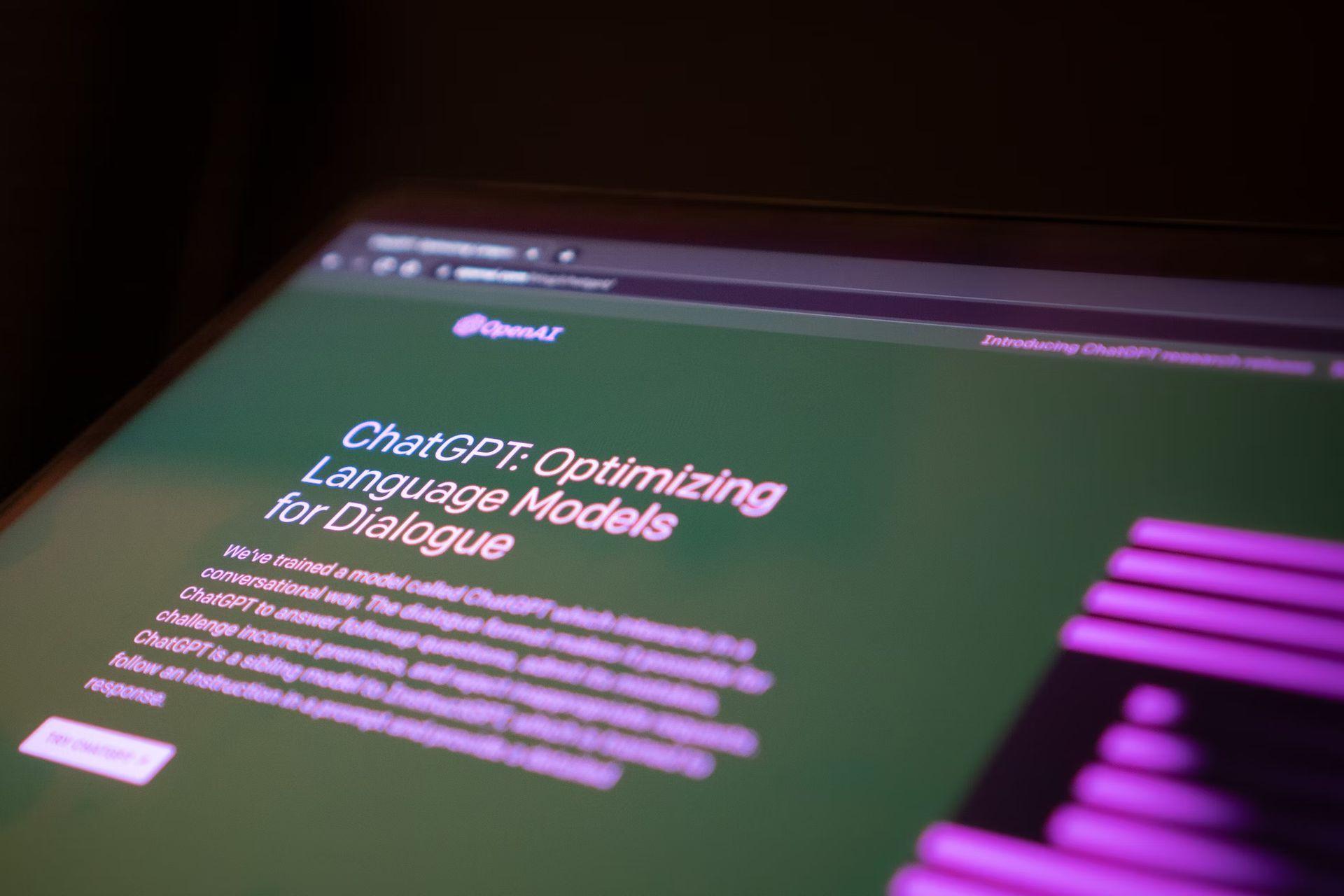As artificial intelligence continues to play an increasingly integral role in human computer interaction, ChatGPT has emerged as a powerful tool, providing a platform for users to engage with AI through natural language processing and innovative plugins.
We continue to witness the rapid progression of artificial intelligence, and there is no denying that it has fundamentally altered the way in which we interact with computers. ChatGPT, a platform that utilizes AI to generate text and engage with users, has emerged as a key player in this space. However, what truly sets ChatGPT apart is its recent implementation of plugins, which enable it to navigate the web and execute complex tasks beyond text generation.
This breakthrough represents a significant milestone in the evolution of AI and marks a pivotal moment in the development of ChatGPT. As OpenAI continues to explore the full potential of ChatGPT, the platform is poised to become a formidable force in the tech landscape and challenge established giants such as Google and Apple. The ramifications of this advancement are profound, and we are only beginning to scratch the surface of the possibilities that this new paradigm presents.
ChatGPT plugins “could” change human computer interaction forever
In light of recent developments, it appears increasingly likely that OpenAI may now view itself primarily as a consumer-focused enterprise. While the organization was originally established as a research laboratory, it has since expanded its purview to include AI infrastructure provision, suggesting a willingness to adapt to changing circumstances.
It would be unwise to assume that this evolution represents the final form of OpenAI as it continues to pursue new approaches and cutting-edge technologies in its quest to remain at the forefront of the industry. The implications of this shift are far-reaching, and they reflect the rapidly-changing landscape of the AI field and the competitive forces at play within it.
Perhaps it would be clever for us to gain a deeper understanding of why ChatGPT plugins are of such immense significance and possess the potential to fundamentally alter the trajectory of technological evolution.

What are ChatGPT plugins?
According to OpenAI, “plugins are tools designed specifically for language models with safety as a core principle, and help ChatGPT access up-to-date information, run computations, or use third-party services.”
We’ve added initial support for ChatGPT plugins — a protocol for developers to build tools for ChatGPT, with safety as a core design principle. Deploying iteratively (starting with a small number of users & developers) to learn from contact with reality: https://t.co/ySek2oevod pic.twitter.com/S61MTpddOV
— Greg Brockman (@gdb) March 23, 2023
At launch, ChatGPT introduced users to a world of possibilities with its collection of third-party plugins and two OpenAI-developed plugins. From booking international flights to ordering takeout, users were able to complete a range of tasks quickly and easily, thanks to the platform’s impressive capabilities. However, as exciting as this initial offering was, it represents just the beginning of what ChatGPT is capable of.
As the platform continues to grow and evolve, we can expect to see an influx of new plugins that will expand its capabilities even further. With each new plugin, ChatGPT will become more powerful and versatile, allowing users to do even more with just a few simple clicks. This will undoubtedly have far-reaching implications for the world of technology and beyond. As ChatGPT continues to evolve, we can expect it to challenge established players in the tech space, setting the stage for a new era of innovation and progress.
For further insight into ChatGPT plugins and the technical boundaries that surround them, we invite you to peruse our comprehensive article on the subject.
Understanding the significance of ChatGPT plugins
Large language models, such as GPT-4, have shown great proficiency in understanding text, reasoning, and following instructions. However, their inability to store and retrieve all the world’s facts accurately presents a major challenge. Additionally, they are only capable of generating text, which limits their scope of application. Fortunately, plugins offer a solution to some of the most significant issues with ChatGPT.
One of the main issues is hallucination, where ChatGPT may provide false answers instead of admitting to not knowing the answer. This can be remedied through the use of external sources, which can provide accurate information to the platform. Plugins can facilitate this process by providing access to relevant data.
Another challenge with ChatGPT is the problem of stale information. It is expensive to train an LLM, and once it is trained, updating it with new information can be difficult. Plugins can address this issue by injecting fresh information into the platform, enabling it to stay up-to-date.

Moreover, private information presents another challenge, as ChatGPT cannot access certain information, such as bank account balances. Plugins, however, have the potential to address this issue by allowing users to connect to external services.
Finally, while generating text is useful, taking action is even more critical. Plugins enable ChatGPT to not only generate text but also to perform actions on external services. This is particularly significant as it can potentially offer users the ability to perform virtually any task on their computers or phones.
By addressing these four significant challenges, plugins have the potential to exponentially increase the utility of ChatGPT. This represents a significant advancement, given the platform’s already impressive capabilities. Plugins have the capacity to initiate a cycle of momentum for OpenAI by enticing a larger user base and accelerating progress in the field of artificial intelligence.
Human computer interaction and artificial intelligence
Having explored the ways in which plugins can revolutionize ChatGPT, it’s worth examining how this development fits into the broader landscape of human computer interaction and artificial intelligence. By examining the implications of this technological breakthrough, we can gain a better understanding of how AI is evolving and its potential impact on our daily lives.
To truly become the “next big thing,” an innovation must be capable of fundamentally altering how people interact with the world around them. This requires not only technological innovation but also a deep understanding of human behavior and psychology.
As we consider the potential of ChatGPT and its plugins, it’s clear that they have the potential to usher in a new era of human-computer interaction, where the lines between what is human and what is machine become increasingly blurred.
The field of human computer interaction (HCI) centers on the creation, analysis, and application of information and communication technologies, with the explicit objective of enhancing user experiences, task performance, and quality of life. At present, HCI is both influenced by and influencing the development of artificial intelligence (AI) and intelligent augmentation (IA) applications.
How ChatGPT will change human computer interaction?
One of the most significant benefits of plugins for ChatGPT is the ability to better understand and cater to user needs and preferences. By accessing external sources of information, plugins can provide ChatGPT with a wealth of data that can be used to personalize the user experience.
For example, imagine that a user frequently uses the Kayak plugin to book flights for business trips. ChatGPT can use this information to learn more about the user’s travel preferences and suggest relevant travel options in the future. Similarly, if a user frequently orders takeout using the Instacart plugin, ChatGPT can learn more about their food preferences and suggest relevant restaurant options in the future.
By tailoring its responses to each user’s unique needs and preferences, ChatGPT can provide a more engaging and personalized experience. This, in turn, can increase user satisfaction and retention, making ChatGPT an indispensable tool for users across a variety of domains.

Ethical implications
While ChatGPT plugins offer many exciting possibilities for users, they also raise significant ethical concerns that must be addressed. One of the most pressing issues is privacy, as users must trust that their data is being used ethically and responsibly.
As plugins access external sources of information, users may be uncomfortable with the data being shared with third-party services. Tech companies must ensure that user data is kept secure and that users are fully informed about the data that is being collected and how it will be used.
Another ethical issue with plugins is the potential for bias in development. If plugins are created with a narrow set of perspectives or assumptions, they may perpetuate biases that exist in society. Companies developing plugins must take care to ensure that they are created with a broad range of perspectives and that they do not reinforce harmful stereotypes or discriminatory practices.
An intriguing case in point when it comes to ethics in the development and deployment of ChatGPT plugins is the DAN plugin – “Do Anything Now.” This plugin has the potential to release the chatbot from the moral and ethical constraints that can sometimes limit its responses. However, the implications of this plugin, and the outcomes that may emerge as a result of its deployment, remain to be seen.
Risks of over-reliance on artificial intelligence in human computer interaction
The increasing use of artificial intelligence in human computer interaction raises concerns about the potential risks associated with over-reliance on AI. These risks are multi-faceted and complex and can manifest in a variety of ways.
One such risk is the potential loss of human judgment and critical thinking skills. As AI becomes more integrated into decision-making processes, humans may become more reliant on these systems, leading to a situation where they blindly follow the recommendations of AI systems without questioning their accuracy or validity. This could have serious consequences, particularly in situations where AI systems fail or are unavailable.
Another risk associated with over-reliance on AI in HCI is bias and discrimination. AI systems are only as good as the data they are trained on, and if this data is biased or discriminatory, the resulting system may also exhibit biases or discriminatory behavior. This could lead to unintended consequences, such as discrimination against certain groups of people or the perpetuation of harmful stereotypes.
ChatGPT plugins have the potential to transform the nature of work in profound ways, particularly by enabling automation and necessitating the development of new skill sets. As ChatGPT becomes increasingly capable of performing complex tasks, it is likely that more and more jobs will be automated, particularly those that involve routine and repetitive tasks.
For example, imagine a customer service representative who spends the majority of their time answering the same set of questions. With ChatGPT plugins, it’s possible that this job could be automated, freeing up the representative to focus on more complex and nuanced tasks that require human judgment and decision-making. Similarly, other jobs that involve data entry, content creation, or other routine tasks could be automated with the help of ChatGPT plugins.
However, the rise of automation also raises concerns about the need for new skill sets. As certain jobs become automated, workers will need to develop new skills to remain competitive in the job market. For example, workers may need to develop skills related to data analysis, creativity, or problem-solving, which are less likely to be automated in the near future.
Is ChatGPT the next big thing?
The emergence of ChatGPT and its success in the market highlights the importance of scalability and credibility in the tech industry. While many developers have built applications that bring external information into LLMs and enable them to take action, ChatGPT has been able to achieve a level of adoption that few others have matched.
This is partly due to OpenAI’s credibility and reach, which has enabled it to gain traction with major companies and users alike. The success of ChatGPT feels similar to the launch of the iPhone by Apple, which was a game-changing advancement in the world of mobile technology. But is it, really? The current technology landscape is different from that of the past, and it may be challenging for any new product to achieve the same level of impact.
While the emergence of new technologies is inevitable, it may not be possible for any single technology to be the “next big thing” in the way that the iPhone was. Instead, we are likely to see a proliferation of different technologies serving different purposes, each with its own unique strengths and limitations.
That is why maybe the real question we need to ask is: “Will there be a next big thing?” instead of “Is ChatGPT the next big thing?”
The question of whether OpenAI will exert complete control over the LLM plugin ecosystem is a complex one. While OpenAI will undoubtedly have a significant influence over the development of LLM plugins, it’s unlikely that they will have complete control over the entire ecosystem.

A useful comparison can be drawn with the world of mobile applications, where the App Store and Google Play Store are the two largest app marketplaces. While these marketplaces set certain standards for app development, developers are still able to create apps that work on multiple platforms, not just iOS or Android. In a similar way, while OpenAI may set the standard for LLM plugins, other companies, and developers will likely create their own plugins that work with different LLMs.
In a similar vein, while OpenAI may set the standard for LLM plugins, other companies and developers will likely create their own plugins that work with other LLMs. This means that the plugin ecosystem will likely be decentralized and not under the control of any one company or entity, much like the world of podcasting.
Will there be a next big thing?
It’s difficult to predict whether there will be a “next big thing” in technology, as the development of new technologies tends to be gradual and incremental rather than revolutionary. While there may be breakthroughs in certain fields, such as artificial intelligence or quantum computing, it’s unlikely that any single technology will completely transform the way we live and work in the same way that the internet or the smartphone did.
Instead, we are likely to see a proliferation of different technologies serving different purposes, each with its own unique strengths and limitations. These technologies will continue to evolve and improve over time, but they are unlikely to have the same kind of transformative impact as the internet or the smartphone.
Bottom line
As the integration of artificial intelligence in human computer interaction continues to evolve, ChatGPT and its innovative plugins are proving to be transformative, providing users with new and exciting ways to engage with AI technology. However, as with any emerging technology, there are significant ethical, social, and economic considerations that must be carefully considered. By fostering an ongoing dialogue around these issues, we can work to ensure that AI is developed and deployed in a manner that benefits humanity as a whole, while mitigating potential risks and challenges along the way.






